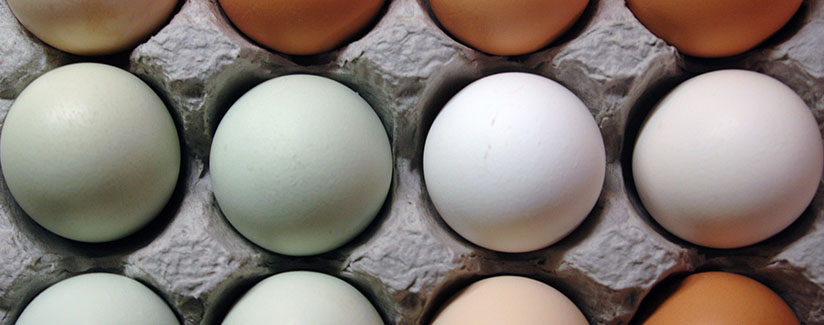
Egg Myths: 7 Common Myths Finally Cracked
12/26/2014
Are organic eggs and brown eggs safe from Salmonella? Can you pasteurize fresh eggs in the microwave? We crack these and other common egg myths.
Myth: Organic eggs and brown eggs are safe from Salmonella.
Truth is, neither organic eggs nor brown eggs are safe from Salmonella. Egg shell color is determined by the breed of hen, and organic is a labeling term to describe how hens are raised.
Myth: You can pasteurize fresh eggs at home in the microwave.
Please don’t try this at home! While the process of pasteurization utilizes heat, it’s a bit more complex than just pressing a button on the microwave. According to the USDA, “The equipment to pasteurize eggs isn’t available for home use, and it is not possible to pasteurize shell eggs at home without cooking the contents of the egg.”
Myth: Egg pasteurization destroys nutrients.
Eggs are high in protein, essential vitamins and minerals, and pasteurization doesn’t change this fact!
Myth: Washing eggs before use eliminates any Salmonella bacteria that may be present.
This won’t work because if any Salmonella bacteria are present, they are usually insidethe egg – the microbes come from a hen’s reproductive tract and are passed to the inside of the egg before it’s laid.
Myth: Eggs from local farmers are safer than those purchased at a grocery store.
This is a very common egg myth! Your farmers market is a great place to find local foods, but that doesn’t guarantee the foods are any safer than those at the grocery store. Eggs come from chickens, and chickens harbor Salmonella bacteria. Your best bet: choose a fresh egg that has undergone all-natural pasteurization.
Myth: Cage-free eggs are free from Salmonella.
Remember, eggs come from chickens, and chickens harbor Salmonella bacteria. Bacteria can come from rodents, feed, flies, water, dust and even other birds, which is why all types of eggs are included the Food and Drug Administration’s Egg Safety Rule.
Myth: Since Salmonella is only found in the yolks of raw eggs, eating raw egg whites is safe.
While it’s true that egg yolks are a common point of contamination, egg whites can also be contaminated. The USDA says, “Researchers say that, if present, the Salmonella is usually in the yolk or ‘yellow’. However, they can’t rule out the bacteria being in egg whites. So everyone is advised against eating raw or undercooked egg yolks and whites or products containing raw or undercooked eggs.”
Source: SafeEggs.com
For more frequently asked questions and information on the safety of eggs and well-being of the hens who lay them, please visit www.eggsafety.org
Looking for more egg facts? Check out some of our other posts:
Eggs – Organic, Cage-Free, Free-Range…What’s the Difference? Part I
Eggs – Organic, Cage-Free, Free-Range…What’s the Difference? Part II
Are Eggs as Bad as Cigarettes?
What’s Up with Free-Range and Cage-Free Eggs Being so Expensive?
“eggs” by Mike Willismizo is licensed under CC BY ND.

























